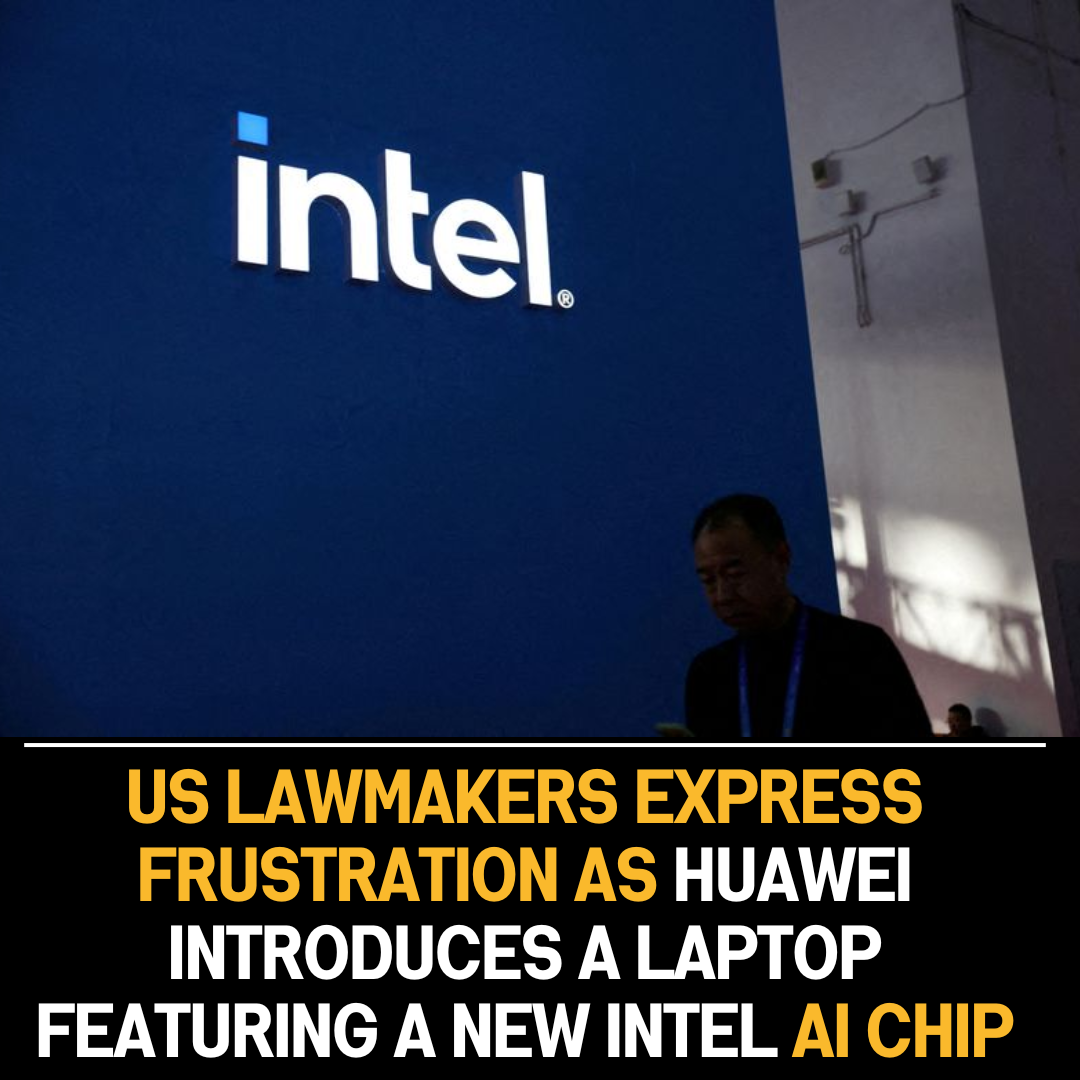The introduction of a new Huawei laptop featuring an Intel AI chip has sparked frustration among US lawmakers, reflecting ongoing concerns about national security, intellectual property rights, and the geopolitical rivalry between the United States and China.
Huawei, a Chinese multinational technology company, has been a focal point of controversy and scrutiny, particularly in the United States. The US government has raised national security concerns over Huawei’s alleged ties to the Chinese government and its potential involvement in espionage activities. As a result, Huawei has faced various restrictions and sanctions from the US, including limitations on its access to American-made technologies and software.
The unveiling of a laptop with a new Intel AI chip by Huawei exacerbates these tensions. Intel, an American semiconductor company, is a key player in the global technology industry and a significant supplier of chips for laptops and other devices. The collaboration between Intel and Huawei raises questions about potential implications for US-China relations, technology transfer, and intellectual property protection.
US lawmakers’ frustration likely stems from several factors. Firstly, there are concerns about the potential use of Huawei’s products for espionage or surveillance purposes, given the company’s perceived close ties to the Chinese government. The integration of an Intel AI chip into Huawei’s laptop could raise additional security concerns, as AI technology has implications for data processing, privacy, and cybersecurity.
Secondly, the collaboration between Intel and Huawei highlights broader issues related to intellectual property rights and technology transfer. US lawmakers may be concerned about the transfer of advanced technologies to Huawei, a company that has been accused of intellectual property theft and unfair business practices. The introduction of a Huawei laptop featuring an Intel AI chip could reignite debates about the protection of American innovation and the enforcement of trade regulations.
Furthermore, the unveiling of the Huawei laptop underscores the ongoing technological competition between the United States and China. Both countries are vying for leadership in key emerging technologies, including artificial intelligence, semiconductors, and 5G telecommunications. The integration of an Intel AI chip into a Huawei product represents a symbolic challenge to US dominance in the global tech industry and underscores China’s ambitions to achieve technological self-reliance.
In summary, US lawmakers’ frustration over Huawei’s introduction of a laptop with a new Intel AI chip reflects broader concerns about national security, intellectual property rights, and geopolitical competition between the United States and China. The development highlights the complexities of navigating the intertwined interests and tensions in the global technology landscape.









